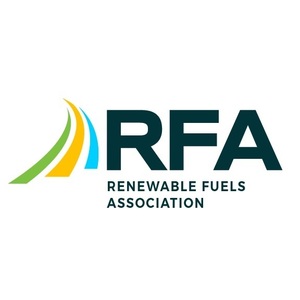RFA emphasizes ethanol's potential in USDA climate-smart program

November 3, 2021
BY Renewable Fuels Association
The USDA’s new Climate-Smart Agriculture and Forestry program should prioritize projects that will help farmers and downstream processors—like ethanol biorefineries—measure, verify, and monetize carbon sequestration and emissions reductions that result from new technologies and more efficient practices. This recommendation was one of many suggestions submitted by the Renewable Fuels Association Monday in response to the USDA’s request for information on potential Climate-Smart Agriculture and Forestry (CSAF) initiatives.
RFA’s comments highlighted the fact that renewable fuels already serve as an excellent example of how agriculture can reduce emissions and significantly contribute to the fight against climate change.
Advertisement
“Corn-based ethanol is the perfect climate-smart commodity; it already cuts GHG emissions in half compared when directly to gasoline,” wrote RFA President and CEO Geoff Cooper. “The transportation sector is the single largest source of GHG emissions in the U.S. Although emissions from the sector are lower than they were in the mid-2000s, they still accounted for 29% of total U.S. emissions in 2019. Therefore, for the CSAF Partnership Program to have the greatest impact, projects that involve the transportation sector, specifically including biofuels, should be eligible for support.”
When it comes to ethanol feedstock, the separation of climate-smart corn from commodity field corn may require adjustments to the supply chain, the comments noted, but this is not unusual for today’s production agriculture. “Systems that could be used in supply chains for climate-smart corn or that could serve as analogs already exist or are taking shape,” Cooper wrote.
In addition, when it comes to project funding, USDA should support efforts that help bridge the gap between current systems and those that will be needed for climate-smart corn and ethanol to expand to commercial scale. It is not necessary that USDA fully fund projects, Cooper wrote, but more simply “to provide the support needed to help get climate-smart agriculture off the ground and demonstrate to private-sector participants that this market segment will have the size and staying power to merit their investment.”
Advertisement
With regard to USDA’s stated desire to more inclusively serve disadvantaged communities, Cooper finally noted that the inclusion of ethanol and related corn production in the CSAF Partnership Program would benefit historically underserved communities more broadly, including economically and environmentally disadvantaged communities in both rural and urban areas.
Related Stories
President Trump on July 4 signed the “One Big Beautiful Bill Act.” The legislation extends and updates the 45Z credit and revives a tax credit benefiting small biodiesel producers but repeals several other bioenergy-related tax incentives.
CARB on June 27 announced amendments to the state’s LCFS regulations will take effect beginning on July 1. The amended regulations were approved by the agency in November 2024, but implementation was delayed due to regulatory clarity issues.
The USDA’s National Agricultural Statistics Service on June 30 released its annual Acreage report, estimating that 83.4 million acres of soybeans have been planted in the U.S. this year, down 4% when compared to 2024.
SAF Magazine and the Commercial Aviation Alternative Fuels Initiative announced the preliminary agenda for the North American SAF Conference and Expo, being held Sept. 22-24 at the Minneapolis Convention Center in Minneapolis, Minnesota.
Saipem has been awarded an EPC contract by Enilive for the expansion of the company’s biorefinery in Porto Marghera, near Venice. The project will boost total nameplate capacity and enable the production of SAF.
Upcoming Events










